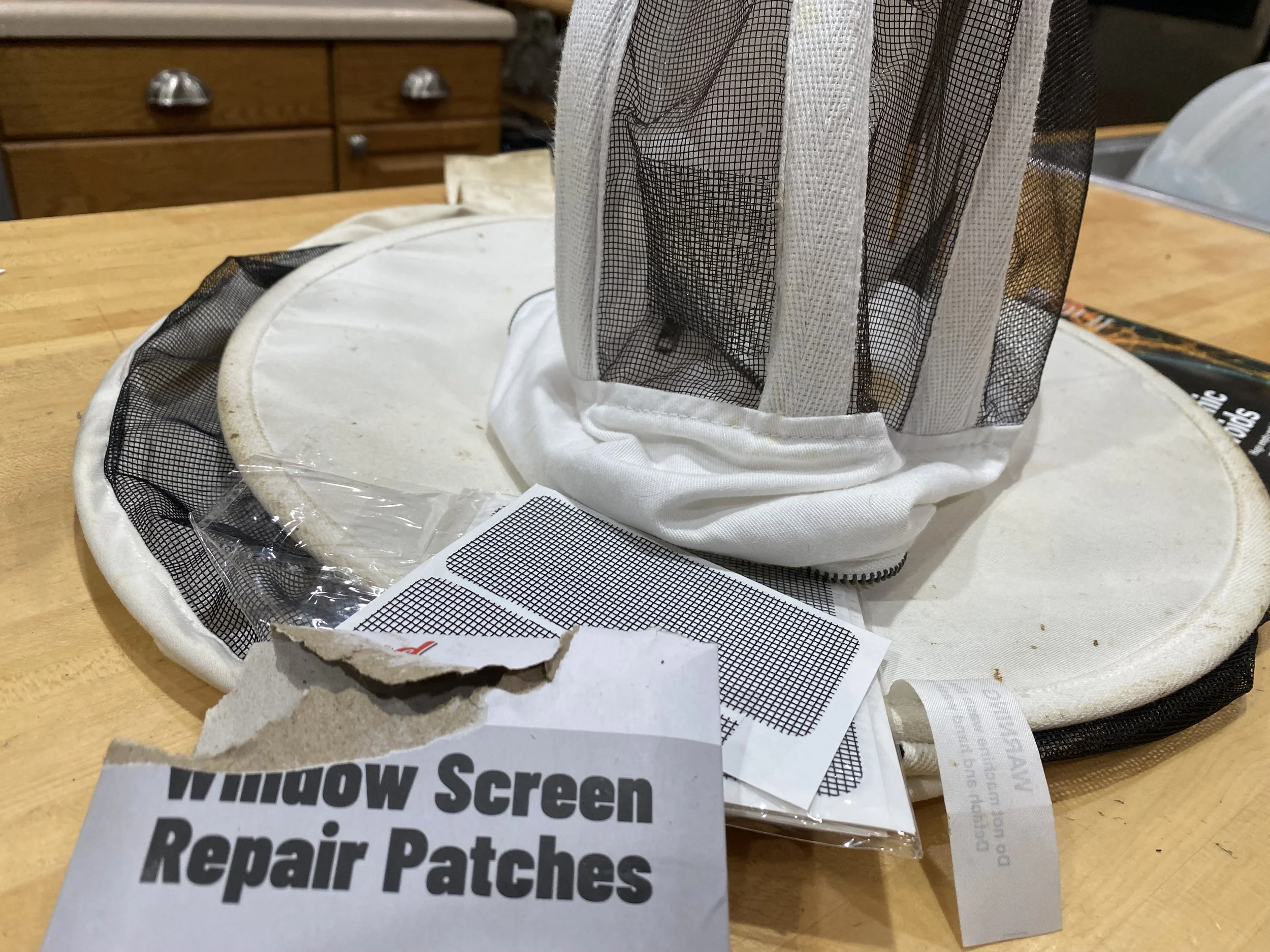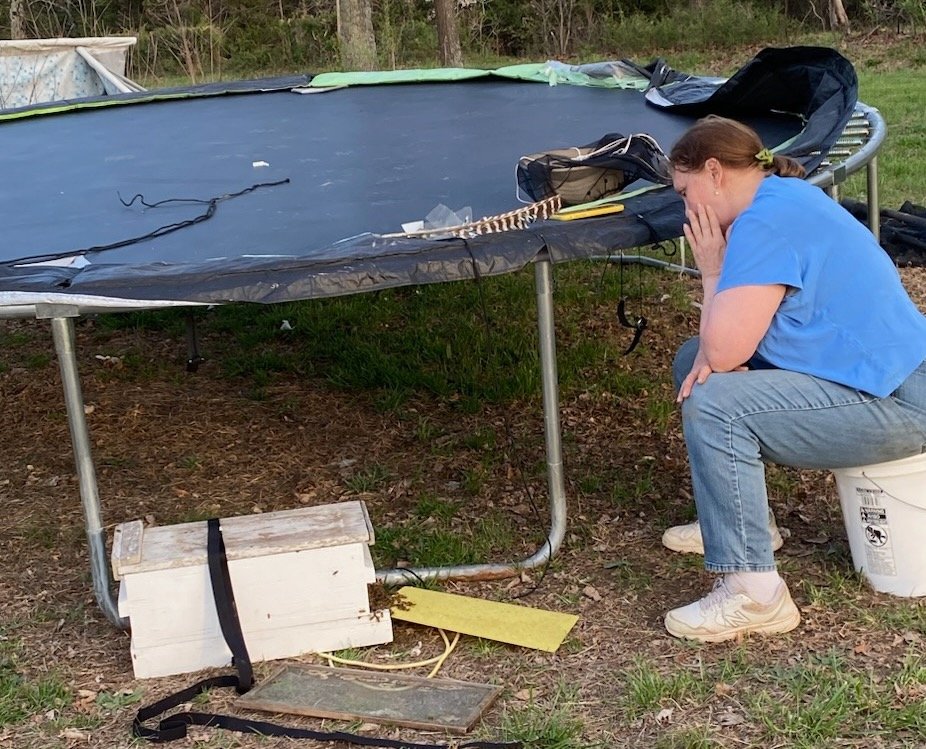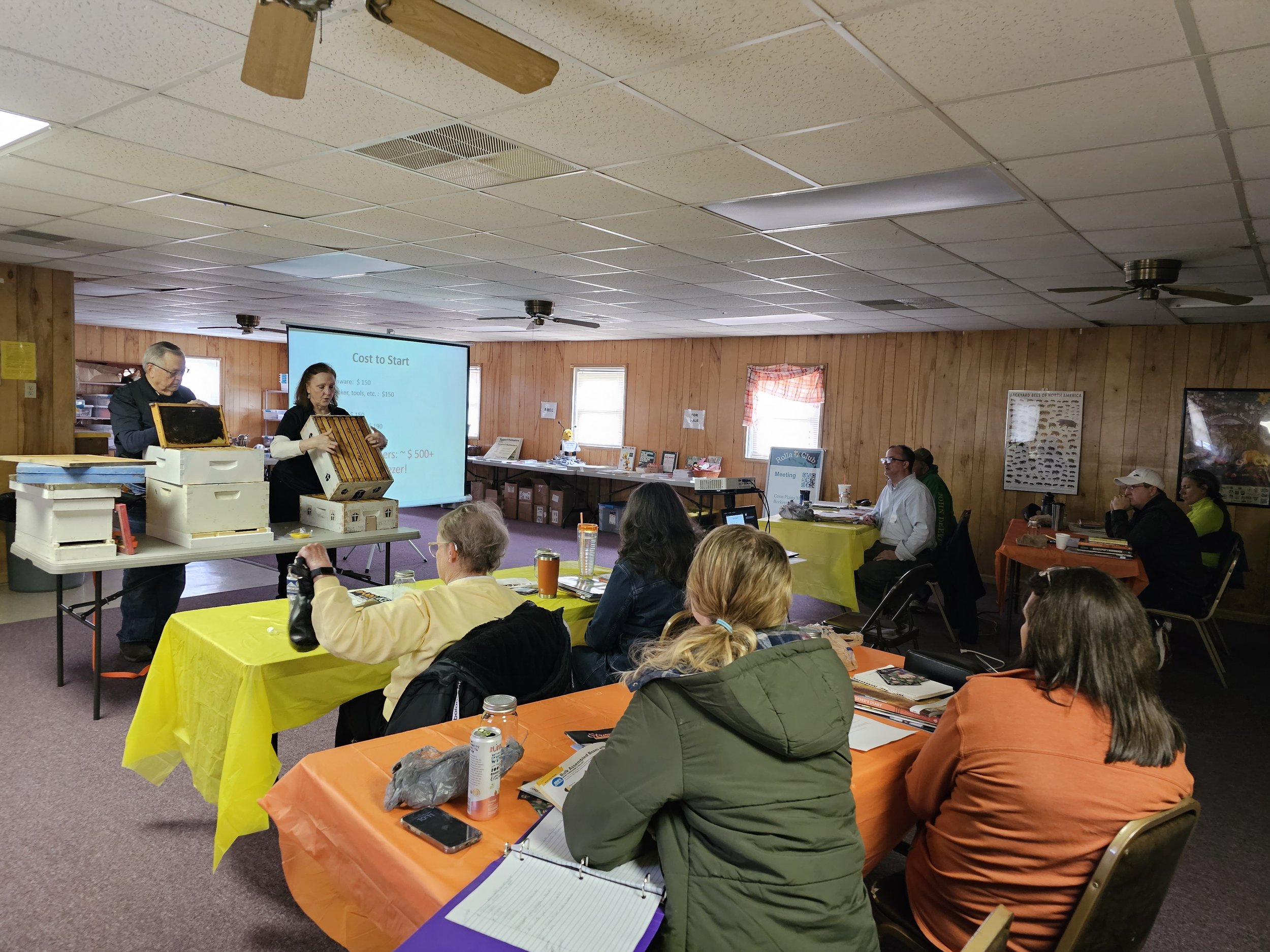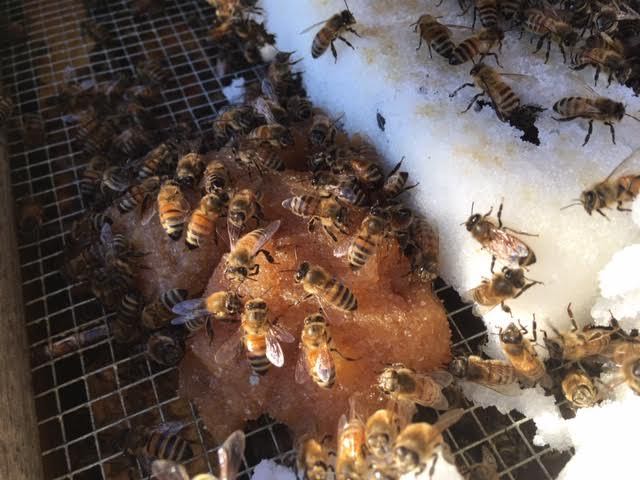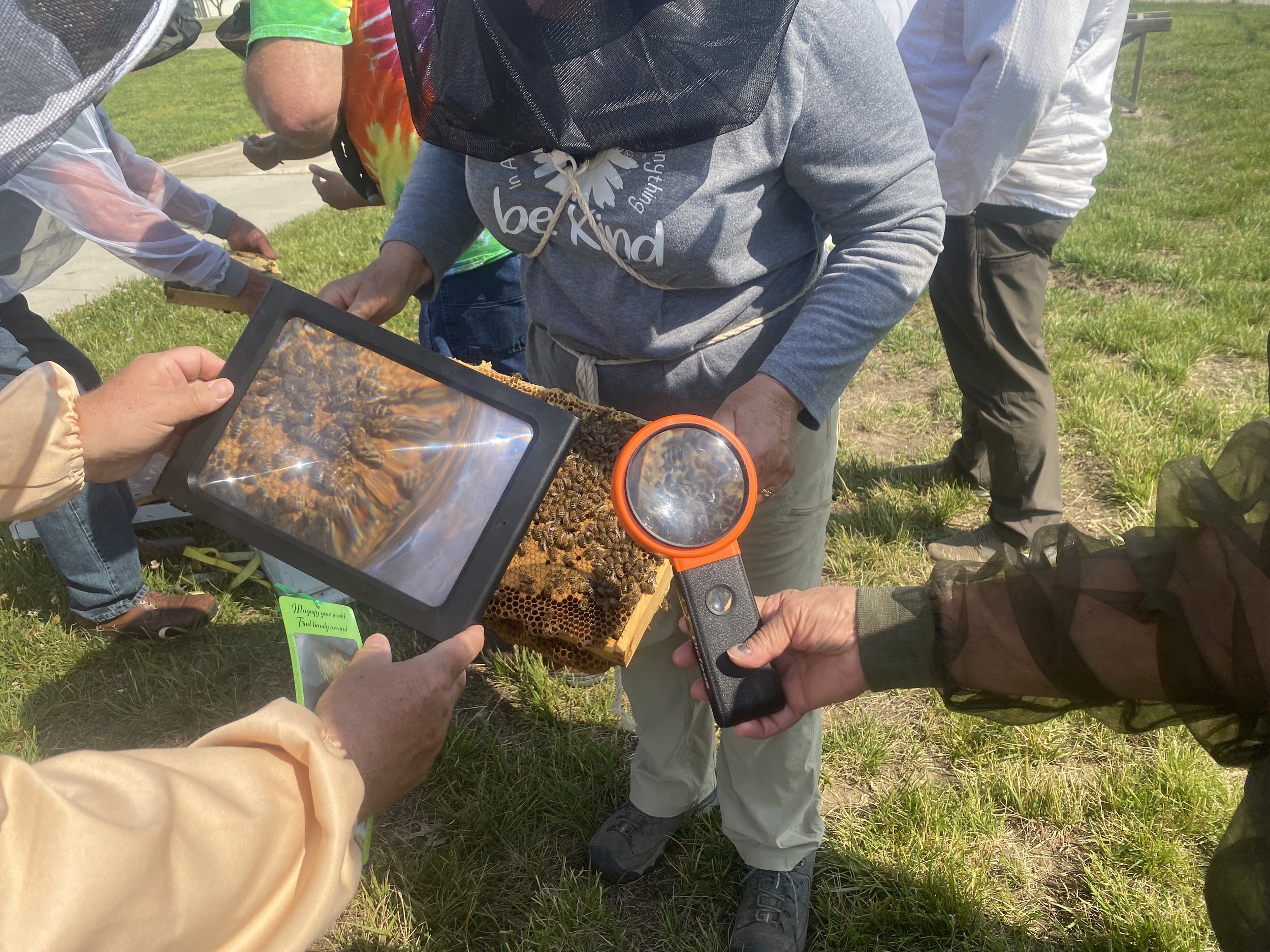Apologizing to Wind Blown Bee Colony
/My wind blown colony settling on winter sugar cakes under the hive lid. (Photo by Charlotte Ekker Wiggins)
Apologizing to Wind Blown Bee Colony
As a beekeeping coach, I am pretty insistent about not opening up a hive over winter. Honey bees have worked diligently to seal up the hive cracks with propolis, or bee glue. We now also know propolis has antibacterial qualities, so we want to keep as much of the propolis in the hive as possible.
So it was with great trepidation that I saw one of my hives knocked over. We had had 65+ mph winds the night before. Although I had checked and secured all straps around hives the day before, this one hive was apparently in the perfect spot to get hit.
Another hive 10 feet to the left and forward of this poor colony was untouched.
The wind blown colony as I found it after 65 mph winds hit our hillside. (Photo by Charlotte Ekker Wiggins)
A mad dash out to the apiary confirmed the bees had made it, they were gathered in the bottom two boxes. Which originally were the top two hive boxes full of stored honey.
I removed the empty bottom two boxes to shorten the hive and gently, slowly, carefully - settled the bees back in.
Once I moved the frames back into boxes, I found several clumps of bees among the dried leaves. I took those to be young, nurse bees that couldn’t orient themselves. An empty box with drawn comb settled over them for a few minutes and they got a comb ride back into the hive.
I rewrapped the hive since the wind had broken their propolis seals. The wrap should help keep them dry from incoming rain and wind.
The hive back together with a couple of empty boxes removed. (Photo by Charlotte Ekker Wiggins)
I frankly did the least amount of rearranging frames to minimize stress on the bees. While I was in there, though, I did take the opportunity to do a quick inventory of how much honey they had stored. They were well stocked for winter with two honey-filled supers. I tried to be as quick as I could without rushing the introduction of the frames, I didn’t want to squish the queen. Most settled in; a few left a few stings.
I understood. It was a bad situation all around. The best outcome was to get them back into the hive.
As I watched bees flying back in, I decided to make them supplemental winter sugar cakes. I had added some to a couple of my smaller colonies earlier in case the smaller bee clusters ran out of honey. There are a number of stressors bee face but starvation - and well, falling over in a windstorm - should not be among them.
Once the sugar cakes were ready, I suited up with my beekeeping jacket and headed out to the hive to place the sugar cakes. i leave a feeding shim on top of all my hives so the bees have a back up entrance in case the lower front door is clogged with rain and ice. It was 62F and sunny so bees were out flying. To no surprise, NONE were too happy to see me and let me know. I made quick work of adding the sugar cakes to the top feeding shim and left.
A week later, when temperatures were warm again, I approached the hive. Not a bee in sight. Usually when temperatures are over 50F, bees will out in the garden flying.
When I carefully lifted the hive lid, a few bees peered calmly out at me. Ok, so they made it. And were calm. Good signs, they had settled back in. Whew.
Bees under the lid taking a peek at the hive visitor - me! (Photo by Charlotte Ekker Wiggins)
Bees under the top inner cover on their supplemental sugar cakes. (Photo by Charlotte Ekker Wiggins)
I spent only a few seconds under the inner cover, long enough to take these photos. Bees were working the supplemental sugar cakes, which is what they should have been doing. I closed up the hive with nary a sting.
Yes, it was a good idea to give them the supplemental sugar cakes as insurance against starving. I monitor my bees throughout winter to make sure they have food.
Part of me was also a bit relieved. Apology accepted!
Charlotte






